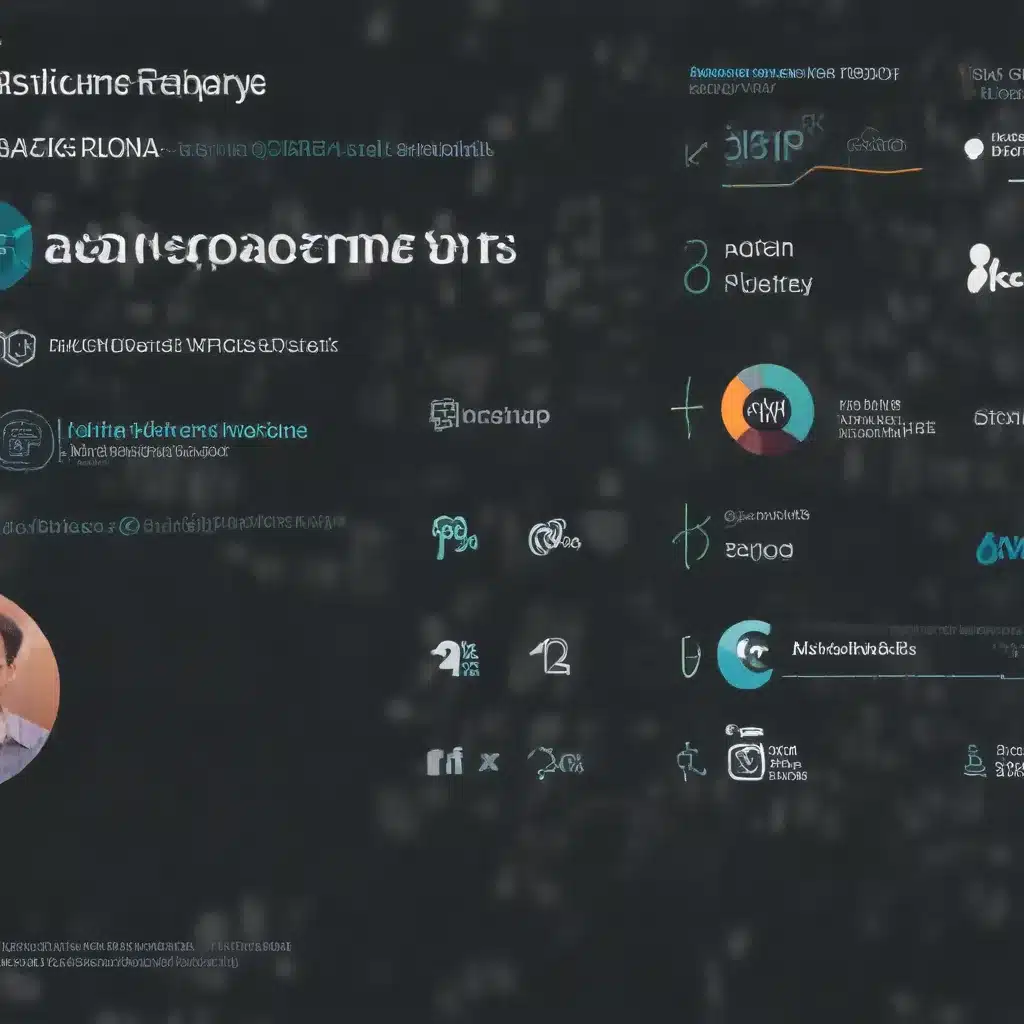
The Evolving SaaS Metrics Landscape
As the SaaS industry continues its rapid evolution, the role of metrics in guiding strategic decision-making has become increasingly complex. The advent of artificial intelligence (AI) has introduced a new layer of sophistication, fundamentally altering the way we track and interpret key performance indicators (KPIs). This comprehensive article delves into the insights shared at the SaaS Metrics Palooza 2024 conference, exploring the profound impact of AI on SaaS metrics and the strategies necessary to navigate this transformative landscape.
Embracing the AI Revolution in SaaS
The SaaS industry has long been at the forefront of data-driven decision-making, with a relentless focus on metrics to fuel growth and optimize operations. However, the proliferation of AI-powered tools and technologies has ushered in a new era, where the traditional SaaS metrics playbook is being rewritten.
Automated Insights and Forecasting
One of the most significant impacts of AI on SaaS metrics is the ability to generate automated insights and forecasts. AI-powered analytics platforms can now sift through vast troves of data, identifying patterns and trends that would have previously required extensive manual analysis. This allows SaaS companies to make more informed, data-driven decisions with greater speed and precision.
Personalized Recommendations and Targeting
AI is also transforming the way SaaS companies approach customer engagement and retention. By leveraging machine learning algorithms, SaaS platforms can now offer personalized product recommendations, tailored pricing models, and highly targeted marketing campaigns. This hyper-personalization has a direct impact on key metrics such as customer lifetime value (CLV), churn rate, and cross-sell/upsell success.
Predictive Maintenance and Anomaly Detection
AI’s ability to identify anomalies and predict potential issues has significant implications for SaaS infrastructure and operational efficiency. By monitoring system performance, resource utilization, and user behavior, AI-powered tools can proactively flag potential problems and recommend preemptive actions. This, in turn, can lead to improved service-level agreements (SLAs), reduced downtime, and more accurate cost forecasting.
Navigating the New Frontier of SaaS Metrics
As the influence of AI on SaaS metrics continues to grow, SaaS leaders must adapt their strategies and approaches to maximize the benefits while mitigating the potential challenges.
Redefining KPIs and Benchmarks
The introduction of AI-driven insights has necessitated a reevaluation of traditional SaaS KPIs. Metrics like annual recurring revenue (ARR), customer acquisition cost (CAC), and net retention rate (NRR) may need to be recalibrated to account for the impact of AI-powered personalization, predictive maintenance, and forecasting capabilities.
Additionally, establishing appropriate industry benchmarks has become more complex, as the application of AI can lead to significant variations in performance across different SaaS verticals and business models. SaaS companies must carefully analyze their own metrics in the context of their specific AI adoption and deployment strategies.
Ensuring Transparency and Trust
As AI becomes more deeply embedded within SaaS operations, maintaining transparency and building trust with stakeholders, customers, and investors is crucial. SaaS companies must be proactive in explaining the role of AI in their metrics and the methodologies used to derive insights.
Providing clear documentation, explaining the limitations and potential biases of AI-powered analytics, and fostering open communication can help mitigate concerns around data privacy, algorithm bias, and the reliability of SaaS metrics.
Aligning Metrics with Evolving Business Models
The rise of usage-based pricing, outcome-driven contracts, and other innovative SaaS business models has further complicated the metrics landscape. As SaaS companies adapt their pricing strategies to meet changing customer demands, traditional metrics may no longer accurately reflect the true health and performance of the business.
Integrating AI-powered insights into the development of new pricing and packaging models can help SaaS companies align their KPIs with evolving customer needs and revenue streams. This agility will be crucial in maintaining a competitive edge in the rapidly shifting SaaS marketplace.
Unlocking the Full Potential of AI-Driven SaaS Metrics
By embracing the power of AI and thoughtfully integrating it into their SaaS metrics strategies, companies can unlock a wealth of opportunities to drive growth, improve operational efficiency, and enhance customer experiences.
Optimizing Customer Acquisition and Retention
AI-powered predictive analytics can help SaaS companies identify the most promising customer segments, refine their marketing and sales strategies, and personalize the customer journey to drive higher conversion rates and reduce churn.
Enhancing Product Development and Innovation
AI-driven insights can inform product roadmaps, identify feature gaps, and guide the development of new functionalities that better align with customer needs. This can lead to increased user engagement, improved adoption, and higher customer satisfaction.
Improving Operational Efficiency and Cost Management
AI’s ability to detect anomalies, predict resource demands, and optimize infrastructure utilization can translate into tangible cost savings, improved service reliability, and more accurate financial forecasting.
Elevating the Role of the SaaS Metrics Champion
As the SaaS metrics landscape evolves, the need for a dedicated “metrics champion” within SaaS organizations has become more critical than ever. This individual, armed with a deep understanding of AI-driven analytics, can help guide the company’s strategic decision-making, foster cross-functional alignment, and ensure the effective implementation of AI-powered metrics initiatives.
Conclusion: Embracing the Future of SaaS Metrics
The integration of AI into the SaaS metrics ecosystem represents a profound shift in the way SaaS companies measure, analyze, and optimize their performance. By embracing this transformation, SaaS leaders can unlock new avenues for growth, enhance customer experiences, and maintain a competitive edge in an increasingly dynamic and technology-driven landscape.
As the insights from SaaS Metrics Palooza 2024 have shown, the future of SaaS metrics is one of increased sophistication, personalization, and strategic agility. By aligning their metrics strategies with the power of AI, SaaS companies can navigate this new frontier and redefine the standards of success in the ever-evolving SaaS industry.












